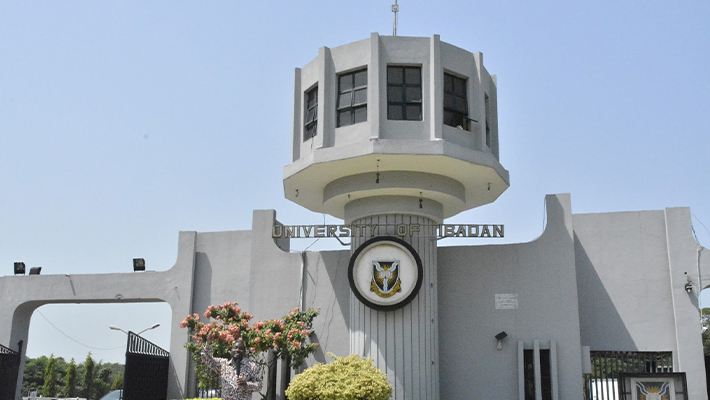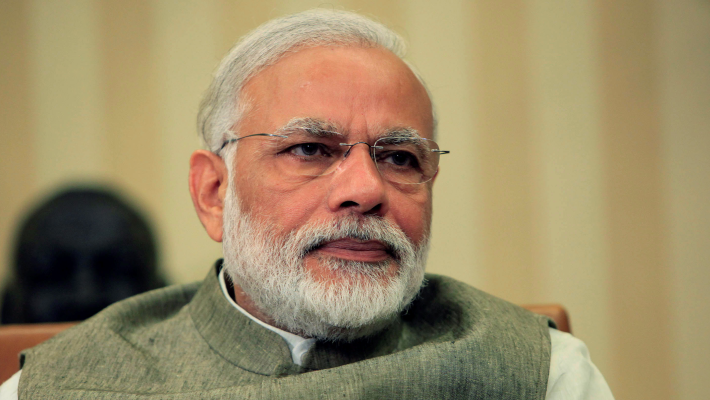UI holds first virtual matriculation ceremony

The University of Ibadan (UI) Tuesday held its first virtual matriculation ceremony for over 7000 students admitted for the 2020/2021 academic session.
4,000 students were admitted for the conventional degree programmes while over 3000 others were for the Open and Distance Education (ODE) programmes.
Addressing the matriculants, the Acting Vice-Chancellor of the institution, Professor Adebola Ekanola, said the institution had to forge ahead despite the challenges occasioned by the COVID-19 pandemic and the lingered industrial action by the unions.
He said this resulted in the scrapping of the 2019/2020 academic year.
Mr. Ekanola, who emphasised the position of pride that the institution occupied in Africa and Nigeria, charged the new intakes to be focused and disciplined.
“You need these virtues to successfully complete your studies.
“You need to continually remember that the distance between today’s ceremony and the Convocation ceremony is quite long indeed, but by the grace of God and through your consistent hard work, your journey will end in resounding success for you all.
The acting Vice-Chancellor said that a total of 4,472 students were admitted for the conventional mode of studies out of which 4174 have been successfully cleared.
He added that the first semester would be done strictly through virtual learning platforms and no students were expected on campus until the second semester.
In her matriculation address, Dr. Boluwatife Ikwunne, an alumna of the university, charged the matriculants on 10 principles that will guide them throughout their academic year.
Ms. Ikwunne, a 2020 Young Innovation Leaders Fellow and winner of the 2021 Rhodes Scholarship for West Africa, emphasised the importance of discovering their purpose in life, perseverance, humility and studying smart.
She also enjoined them to step out of their comfort zone and learn new skills as well as being deliberate about personal growth.
We have recently deactivated our website's comment provider in favour of other channels of distribution and commentary. We encourage you to join the conversation on our stories via our Facebook, Twitter and other social media pages.
More from Peoples Gazette

Politics
Katsina youths pledge to deliver over 2 million votes to Atiku
“Katsina State is Atiku’s political base because it is his second home.”

Economy
FX Liquidity: CBN approves sale of additional $10,000 each to 1,583 BDCs
The apex bank had earlier, on April 8, approved the sale of $10,000 to 1,588 eligible BDCs at the rate of N1,101 to the dollar.

World
Chinese tourist dies taking selfie with husband in Indonesia
“When she stepped back, her long skirt tripped her up. She stumbled and fell backwards,” said a tour guide.

World
General Election: India’s PM Modi accuses opposition of being pro-Muslim
Mr Modi’s government has repeatedly been accused of targeting and discrimination against India’s estimated 200 million Muslims, who form the world’s third-largest Muslim population.

Rights
Wanted Yahaya Bello asks court to dismiss EFCC’s arrest warrant
The EFCC declared the former governor wanted over alleged N80 billion looting of Kogi state’s treasury.

World
UK-Rwanda asylum law cruel, despicable, says Médecins Sans Frontières
The passing of the ‘Safety of Rwanda bill’ marks another dark chapter in the UK’s brutal approach to migration, which is rooted in policies of deterring, externalising and punishing

Economy
Nigerian children facing hunger rose to 16 million in Tinubu’s first year as president: Report
Violent killings and kidnappings in the country’s north have affected food production, disrupted local markets, causing farmers to flee their farms.








